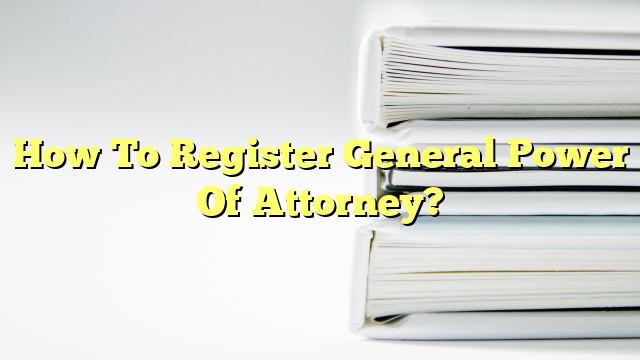Table of Contents
- Introduction
- Does a Power of Attorney Need to be Recorded in California?
- How to Set Up a Power of Attorney in California
- Does a Durable Power of Attorney Need to be Notarized in California?
- What Is General Power of Attorney for California?
Introduction
Power of attorney (POA) is a legal document in which a person (the principal) authorizes another person (the agent or attorney-in-fact) to act on their behalf. In the state of California, there are two primary types of powers of attorney, general and limited. A general power of attorney grants the agent authority over all of the principal’s affairs, while a limited power of attorney is used to give the agent power to act in a specific situation only. In California, a general power of attorney can be registered with the county recorder’s office to give greater protection to the principal.
Does a Power of Attorney Need to be Recorded in California?
No, a power of attorney does not need to be registered with the county recorder’s office in order to be valid in California. However, if the principal chooses to register the power of attorney, it will be available for public review and may provide greater protection for the principal. For example, if the principal is entering into a contract, the other party may request to see proof of the POA to ensure that the agent is truly authorized to act on behalf of the principal.
How to Set Up a Power of Attorney in California
The process of setting up a power of attorney in California is relatively simple. First, the principal must choose the type of power of attorney that they would like to establish. For example, the principal could choose a general power of attorney, which grants the agent broad authority to act on the principal’s behalf. Once the type of power of attorney has been determined, the principal must identify the agent who will be granted the authority.
Next, the principal and the agent must complete the power of attorney document, which includes information such as the principal’s name, the agent’s name, and the specific powers that the agent is authorized to exercise. The document must also be signed by both the principal and the agent, as well as two witnesses. Once the document is completed, the principal may choose to register the power of attorney with the county recorder’s office in order to make it available for public review.
Does a Durable Power of Attorney Need to be Notarized in California?
Yes, a durable power of attorney (DPOA) must be notarized in California in order to be valid. The DPOA document must be signed by both the principal and the agent, and must be notarized by a notary public in the state of California. It is important to note that both the principal and the agent must appear before the notary in order for the DPOA to be valid.
What Is General Power of Attorney for California?
General power of attorney (GPOA) is a legal document that grants the agent broad authority to act on behalf of the principal. A GPOA in California can be used to give the agent authority to make decisions regarding the principal’s finances, property, and other personal matters. The principal can also choose to register the GPOA with the county recorder’s office in order to make it available for public review.


Registered General Power of Attorney is a complicated process. Unfortunately, I believe a step-by-step guide may do more to obfuscate rather than illuminate the process.
Great article! Easy to understand step-by-step guide to registering a General Power of Attorney – fantastic resource for anyone needing to take this important step.